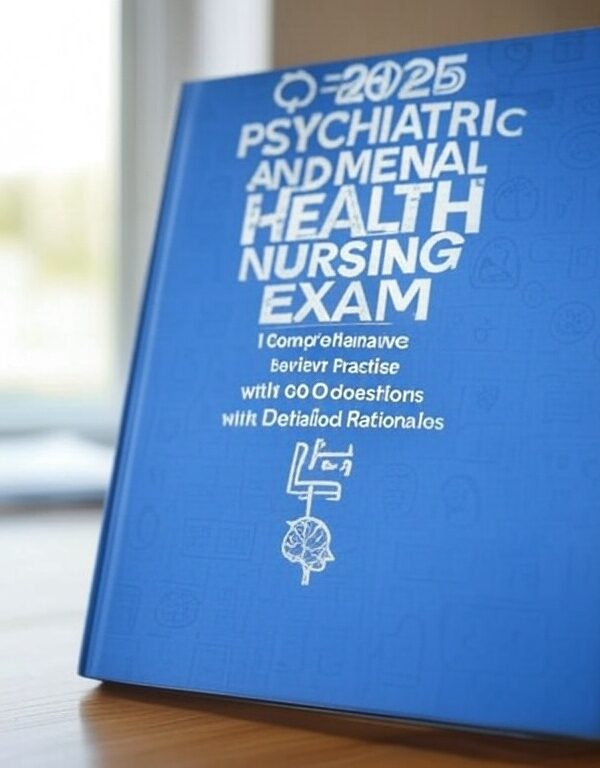-
Comprehensive pharmacology practice for HESI 2025
-
Nursing exam questions with accurate rationales
-
Study support tailored for nursing students
-
Focuses on drug-related nursing concepts
-
Ensures confidence and success in the HESI exam
Preview
1.) A nurse is caring for a hospitalized client who has been taking clozapine (Clozaril) for the
treatment of a schizophrenic disorder. Which laboratory study prescribed for the client will
the nurse specifically review to monitor for an adverse effect associated with the use of this
medication?
1. Platelet count
2. Cholesterol level
3. White blood cell count
4. Blood urea nitrogen level – – correct ans- -3. White blood cell count Rationale:
Hematological reactions can occur in the client taking clozapine and include agranulocytosis
and mild leukopenia. The white blood cell count should be checked before initiating
treatment and should be monitored closely during the use of this medication. The client
should also be monitored for signs indicating agranulocytosis, which may include sore
throat, malaise, and fever. Options 1, 2, and 4 are unrelated to this medication.
2.) Ketoconazole is prescribed for a client with a diagnosis of candidiasis. Select the
interventions that the nurse includes when administering this medication. Select all that
apply.
1. Restrict fluid intake.
2. Instruct the client to avoid alcohol.
3. Monitor hepatic and liver function studies.
4. Administer the medication with an antacid.
5. Instruct the client to avoid exposure to the sun.
6. Administer the medication on an empty stomach. – – correct ans- -2. Instruct the client to
avoid alcohol.
3. Monitor hepatic and liver function studies.
5. Instruct the client to avoid exposure to the sun.
Rationale:
Ketoconazole is an antifungal medication. It is administered with food (not on an empty
stomach) and antacids are avoided for 2 hours after taking the medication to ensure
absorption. The medication is hepatotoxic and the nurse monitors liver function studies. The
client is instructed to avoid exposure to the sun because the medication increases
photosensitivity. The client is also instructed to avoid alcohol. There is no reason for the
client to restrict fluid intake. In fact, this could be harmful to the client.
3.) A client with human immunodeficiency virus is taking nevirapine (Viramune). The nurse
should monitor for which adverse effects of the medication? Select all that apply. 1. Rash
2. Hepatotoxicity
3. Hyperglycemia
4. Peripheral neuropathy
5. Reduced bone mineral density – – correct ans- -1. Rash
2. Hepatotoxicity Rationale:
Nevirapine (Viramune) is a non-nucleoside reverse transcriptase inhibitors (NRTI) that is used
to treat HIV infection. It is used in combination with other antiretroviral medications to treat
HIV. Adverse effects include rash, Stevens-Johnson syndrome, hepatitis, and increased
transaminase levels. Hyperglycemia, peripheral neuropathy, and reduced bone density are
not adverse effects of this medication.












Reviews
There are no reviews yet.